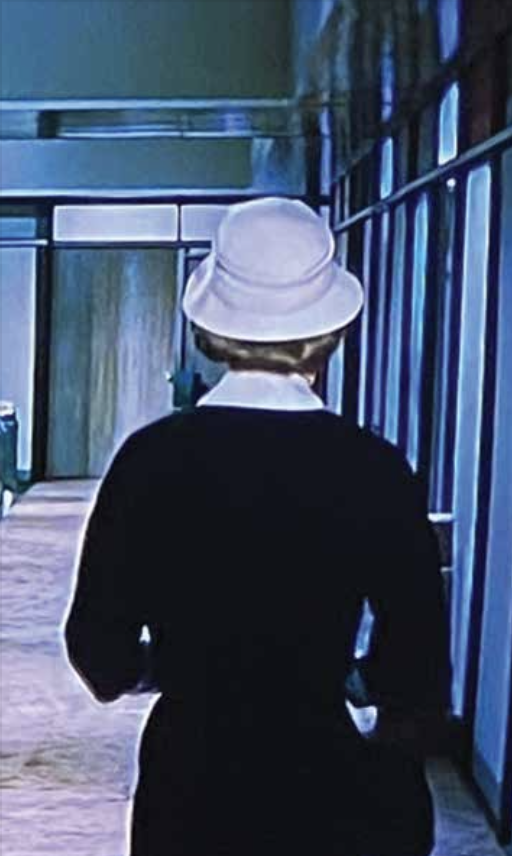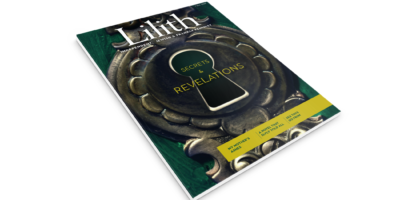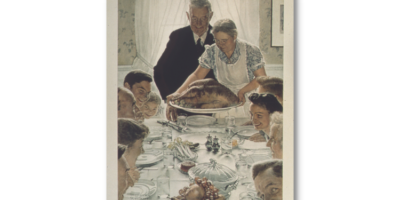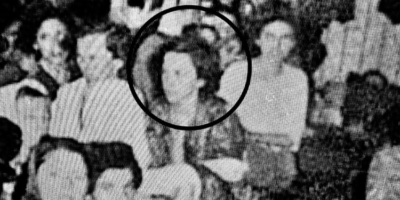
How A Novel Slyly Suggests the Truth about Women in Publishing
A MAJOR BESTSELLER that has unfortunately not tended to be taken very seriously by literary scholars or cultural historians, Rona Jaffe’s novel The Best of Everything tells the stories of several young women employed at a New York publishing house and indexes the changes that were under- way for women in book publishing in those years. The book’s protagonist, Caroline Bender, rises from an assistant role to that of an editor at Fabian Books, a publisher of original paperbacks modeled on Fawcett’s Gold Medal Books, where Jaffe herself worked after graduating from Radcliffe College in 1953.
Among the novel’s other virtues, it describes how a highly educated, independent woman like Caroline had to struggle, in the 1950s, against the presumption that she could not possibly have meaningful professional aspirations.
The operating assumption within the novel is that any woman who marries will necessarily stop working immediately upon doing so; a married woman who continues to work is more or less unimaginable in Jaffe’s fictional world. This, of course, undermines the seriousness with which any woman’s work could be regarded. A man Caroline has been dating, Paul Landis, says as much to her, late in the novel:
“Where is it all going to lead you? It’s one thing to enjoy your job, every girl should have something to do until she’s married, but you live with it every minute of the day. You take work home, you worry about office politics, you let [her senior colleague] Miss Farrow get you down…. You’re much too ambitious, and the worst of it is, you’re fighting with windmills…. You’re knocking yourself out for that third-rate publishing company…. Do you honestly think you’re doing a job that some other girl couldn’t step in and do just as well five minutes after you’ve left? “
For Paul, Caroline’s professionalism is quixotic both because the company she works for is “third-rate” and because there is not anything unique about her contribution to it. Caroline eventually rejects this line of reasoning, and the man offering it, but the novel generally sides with Paul: other than Caroline, every other woman in the novel seeks marriage above all, and even “Miss Farrow,” the unpleasant “bitch” who has fought her way up the ranks at Fabian Books and is the only woman senior to Caroline there, turns out to be willing to abandon her job for a marriage proposal. Aside from dreams of celebrity and wealth, none of the women have any professional ambitions to speak of.
In the world of the novel, Caroline stands out as pioneer- ing and possibly even a little foolhardy in believing that, as a woman, she can or should succeed as a literary professional at all—but while the novel has been recently read as “show[ing] that love and marriage, not a career, were best for women,” one can also read Caroline’s refusal to submit to this regime as an attempt, by Jaffe, to open up a small avenue of resistance.
Indeed, The Best of Everything’s representation of the imposition of marriage and male control on women’s professional trajectories reflects not only the book’s historical moment but also the way Jaffe’s novel came to be written and published. Though Jaffe had begun to publish short stories while working at Fawcett, it was only because of her Radcliffe roommate, Phyllis Levy, who had become secretary to Simon & Schuster’s editor in chief, Jack Goodman, that she met the man who would make her first novel possible. That man was Jerry Wald, a Hollywood producer who came up with the idea of paying fledgling writers to create novels matching film treatments that Wald had concocted that would then be adapted into films in what turned out to be a commercially successful cross-media marketing scheme.
Two Jewish men, Goodman and Wald, who had risen to power in New York publishing and Hollywood, respectively, were the authorities who green-lit The Best of Everything, even if Jewish women like Jaffe and Levy, still fighting for their positions in the publishing industry, were necessary in the process of its production. And just as Paul suggests that “some other girl” could “step in and do just as well” as Caroline, the arrangement with Wald stripped the traditional prerogatives of authorship—first and foremost, independent choice about what subject matter should be the focus of a particular novel—from Jaffe and transformed her into a cog, if a highly rewarded one, in Wald’s powerful content-production machine. These men eroded, in other words, Jaffe’s autonomy, and the young author was treated like an emerging Hollywood starlet: an astonishing
Just a few decades later women like Caroline would come to dominate the publishing industry.
pre-publication media blitz that Wald funded on behalf of the novel emphasized Jaffe’s appearance. Unusually, photographs of the author appeared on the front of the novel’s dust jacket, as well as in many wire-service stories that circulated in dozens of newspapers in the run-up to the novel’s publication.
The coverage was by no means universally respectful; a review in the Shreveport Times captioned a photo of Jaffe, “Authors are getting prettier all the time,” and the Evening Review of East Liverpool, Ohio, noted, vis-à-vis Jaffe’s success, “It makes you wonder how a chick so young knows so much so fully.”
While bearing in mind the degree to which the novel came into being as part of a publicity system that could be said to have exploited Jaffe at least as much as it empowered her, it is worthwhile to consider what the novel wanted to convey to its readers about the gender politics of New York publishing. The book drew on Jaffe’s experience and on those of her friends, like Levy, as well as of other women in the business whom she interviewed. One of the novel’s interventions is to offer up a portrait of Mr. Shalimar, the editor in chief of Fabian’s Derby Books (who was modeled on William Lengel of Fawcett’s Gold Medal Books), that emphasizes how the authority of a previous generation of abusive publishing men had declined.
The novel first mentions him as a “tall, older man with a grayish face and strongly hewn features”—“he looked a little like a Greek shipping magnate, or some kind of Near East tycoon,” one of his young employees thinks, linking him to power and wealth—and emphasizes that he “had known Eugene O’Neill.”
Early on, he also gives grandiose speeches about the democratic potential of the paperback book, but Jaffe does not waste time in pointing to his desuetude and, eventually, pathetic ridiculous- ness. The first time one of the book’s characters meets him, he is sleeping at his desk, and before the end of the second chapter, he has tried and failed to seduce—or, one could more precisely if anachronistically say, he has sexually harassed—a woman serving as his temporary secretary, his mouth “hot and violent and authoritative” as he presses himself onto her. At a Christmas party, Shalimar gets sloppily drunk and harasses another woman who works at the firm, kissing her and then “lower[ing] himself to the floor on all fours and [creeping] under the table” to inspect her legs, then, upon being rebuffed, calls her a “little bitch” and tells her she is fired. Despite his position at the company, though, this incident reveals how little power he has—Caroline tells the woman, “Don’t you worry…. He hasn’t any authority to fire you”—and Caroline and everyone else see that he is “nothing more than a foolish old lecher” and a “dirty old man.” Within a few months, Caroline reflects that “he looked smaller, less authoritative, less frightening,” and that “no one in the office…was afraid of Mr. Shalimar anymore, they all thought of him as a rather pathetic, lecherous old man,” partly because “every girl who had been pinched or kissed by Mr. Shalimar had come forth…to add her story to the office gossip.”
Finally, Caroline reflects that “she would never again be awed and frightened by a Mr. Shalimar”, generalizing, through the insertion of an indefinite article, “a,” from the one individual to his whole type. Indeed, when, after this realization, Shalimar attempts to reduce Caroline’s editorial responsibilities, she stands up for herself (“if you take away any of my authors I’m going to leave”) and prevails over him. For Caroline, the reign of Shalimar and the old male guard of the 1920s was over—whether this was Jaffe’s sense of the situation when she wrote the novel or her hope for the future is difficult to say.
If The Best of Everything, true to its flatly ironic title, is committed to dispelling illusions—illusions of marital bliss, of editorial work, of young love—it cannot envision the reality that would arrive just a few decades later, in which women like Caroline would come to dominate the publishing industry demographically (even while vestiges of male authority at the executive level would stubbornly persist).
Nor did Jaffe’s novel explicitly address how many of the women on the front lines of this transformation would be, like Jaffe and Levy themselves, Jewish.
This might be considered an example of a peremptory era- sure of Jewishness that was not unusual in U.S. popular culture of the time. In several cases in the 1940s and early 1950s, hard- cover novels with explicitly Jewish characters became paperback novels or movies with ethnically unmarked characters. It seems likely that Jaffe avoids explicitly identifying Caroline as Jewish (while avoiding identifying her as Christian, either) so as to eliminate this problem in anticipation of the novel’s preordained mass-market circulation and Hollywood adaptation.
Josh Lambert is the Sophia Moses Robison Associate Professor of Jewish Studies and English at Wellesley College.
Excerpted and adapted from The Literary Mafia: Jews, Publishing, and Postwar American Literature, Yale University Press, 2022








